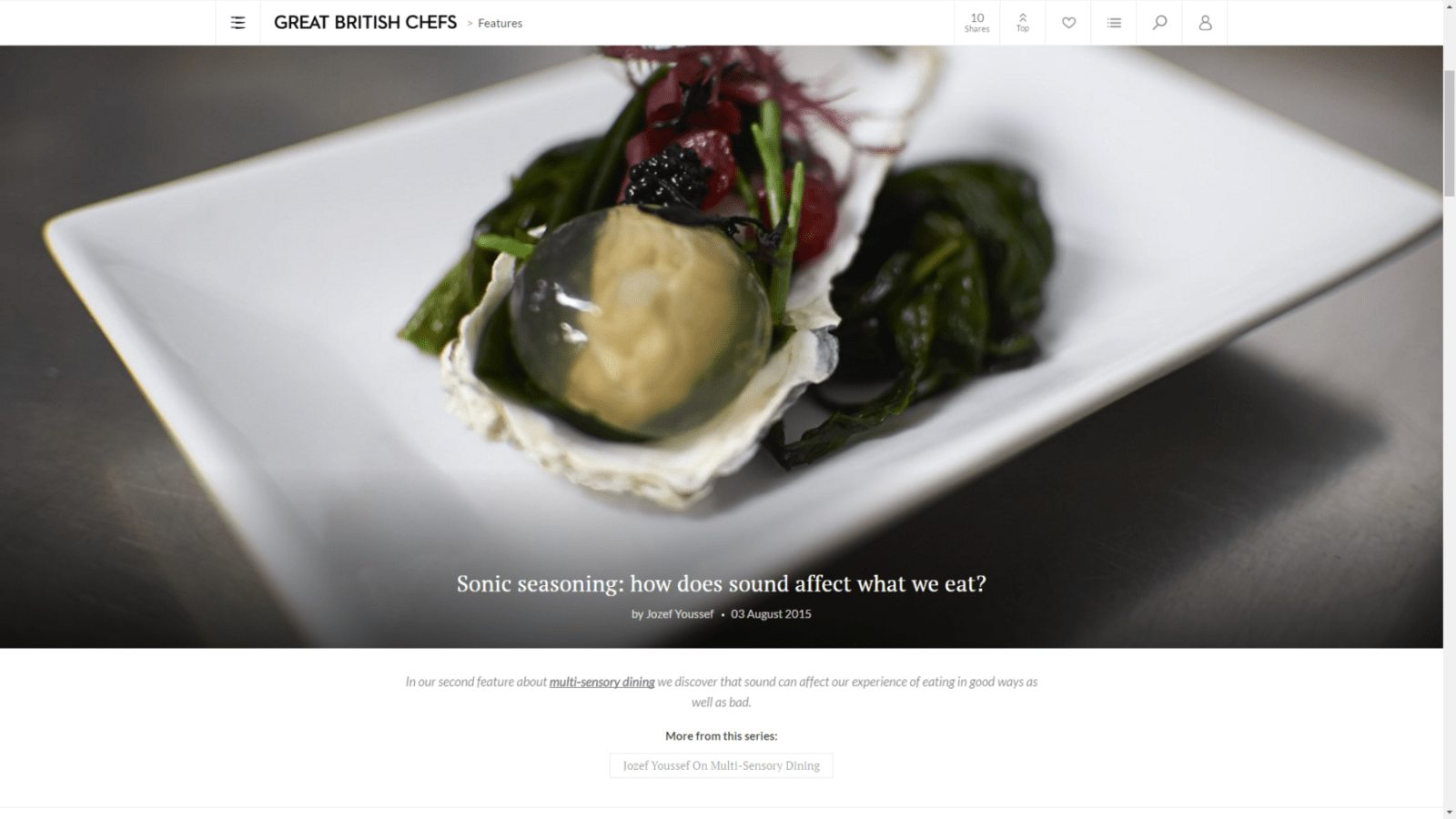
ARTICLE BY JOZEF YOUSSEF ON GBC – SONIC SEASONING: HOW DOES SOUND AFFECT WHAT WE EAT?
Kitchen Theory founder Chef Jozef Youssef published a series of articles on Great British Chefs in 2015 giving readers insights in the field of gastrophysics. What role, if any at all, does sound play in our enjoyment of food? Professor Charles Spence and Chef Jozef Youssef coined the term ‘sonic seasoning.’ In his article, Jozef discusses some of the positive, and negative impacts sonic seasoning can have on our food.
by Jozef Youssef 03 August 2015 Jozef Youssef founded the collaborative gastronomic project, Kitchen Theory, to explore the multi-sensory elements of eating. This is a very exciting time for the world of gastronomy where there is an ever-growing number of scientists and chefs working together to de-mystify our understanding of food and, in turn, our relationship with this source of both sustenance and pleasure. At Kitchen Theory we are particularly interested in the sensory aspects of gastronomy and how the neurological associations and connections between taste, smell, touch, hearing and sound all affect our experiences of food and dining. For this article I want to focus on sound and look at the fascinating ideas and research which have led Professor Charles Spence, head of the Crossmodal Research Laboratory at Oxford University and Kitchen Theory director, to coin the term ‘sonic seasoning’.“SONIC SEASONING: HOW DOES SOUND AFFECT WHAT WE EAT? ”
EATING WITH YOUR EARS
So what does our sense of hearing tell us about food? Imagine being blindfolded and hearing two sticks of celery snapped by your ear, one giving off a crisp ‘crack’ and the other less so. Which stick of celery would you prefer to eat? In this case, the sound tells us that the celery has the crisp, crunchy texture we desire, that it is fresher and of superior quality and presumably packed with more of the vitamins and nutrients that our bodies instinctively seek out. As with many things, this comes back to primal instincts; the link with freshness is thought to be part of the evolutionary appeal of crisp and crunchy foods. ….

